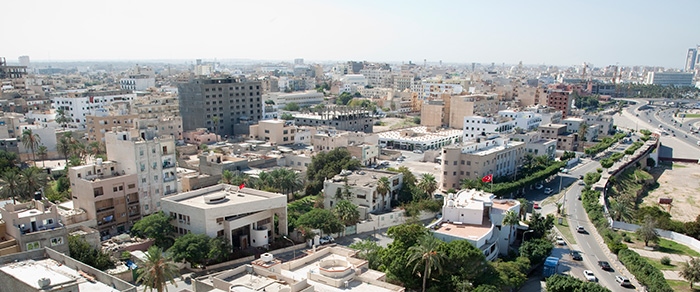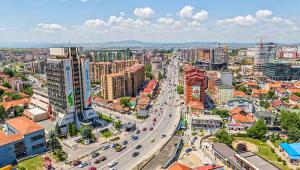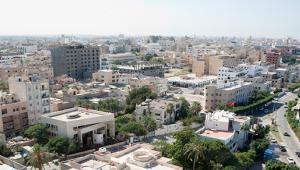Tripoli-Libya-shutterstock_42874129.jpg

Tripoli, Libya
Ali Al-Za’tari, UN mission chief, humanitarian coordinator and representative of the UN Development Programme in Libya, first voiced his fears about the faltering funds in December, when no money whatsoever had been contributed to the £166m appeal, and then again earlier this month after receiving 1% of the asked-for contributions.
Today efforts to support some 2.4 million Libyans affected by conflict or its fallout in the country and in need of urgent assistance are working with just 2.6% of funds – amounting to £4.4m.
Speaking at a press conference today, Za’tari stressed that the humanitarian community was having no difficulties in reaching the neediest. The problem instead is the international community’s failure to provide the necessary financing and supplies.
“Access is not difficult, but the problem is fetching the necessary financial resources,” he said.
He warned that the deterioration of health, sanitation and education services, as well as shortages in drinking water, caused by the crisis will intensify with potentially serious consequences if the appeal continues to go virtually unanswered.
The situation in areas like Benghazi, described by Za’tari as a “wasteland”, is particularly dire. Overall around 1.3 million Libyans were estimated to be food insecure, with many more in need of protection, healthcare, food, shelter or some other form of assistance, last December.
In addition to the human tragedy, Za’tari pointed out the widespread regional impact of the crisis in Libya and said the country remains a major conduit for refugees and migrants who choose to flee to Europe.
In an attempt to persuade the international community it is in their interest to support Libya, he noted there are currently nearly half a million displaced persons whose insecure situations might push them to move on elsewhere.
Since Za’tari last called for more funds earlier this month, the appeal has received additional contributions from the European Commission and Italy, both already donors, taking their total commitments to the appeal in 2016 to $1.45m and $1.58m respectively.
The appeal has also benefited from funds from new donors Switzerland ($1.05m) and South Korea ($850,000).
Three weeks ago, UN secretary general Ban Ki-Moon earmarked $12m in funds for Libya from the UN’s Central Fund for Emergency Response, as part of the allocation of $100m for the world’s neglected emergencies.
Last week, Libya’s presidential council announced a new line up of ministers, which could form the war-torn country’s unity government, bringing fresh hopes for peace after four years of violence.
However, ISIS has taken advantage of a power vacuum in the country. Many hope the new unity government will provide a stronger opposition to their advance and pave the way for international military support to combat the threat, which began last week with a US airstrike that the US government claims killed 43 ISIS members.












